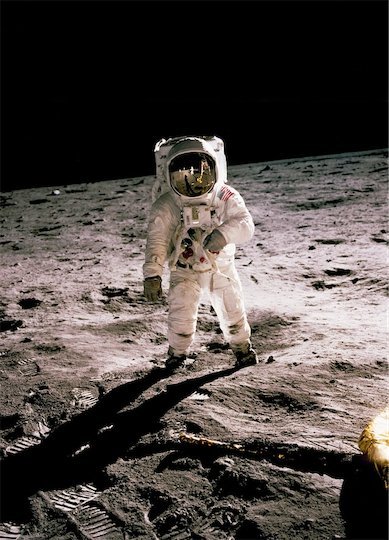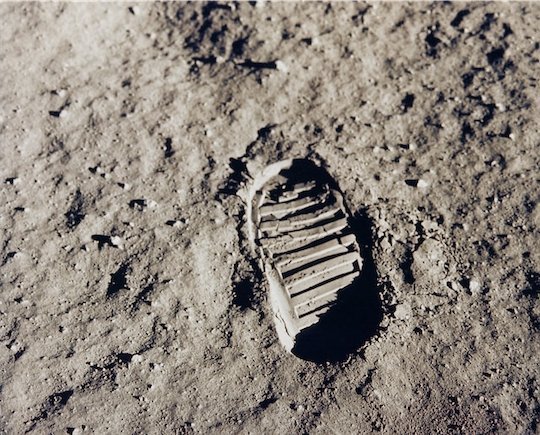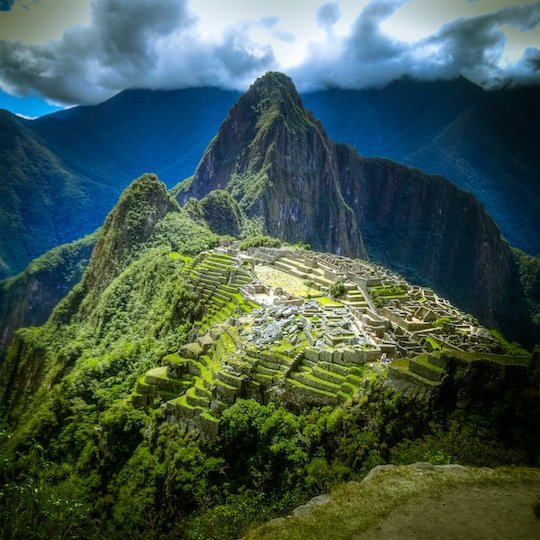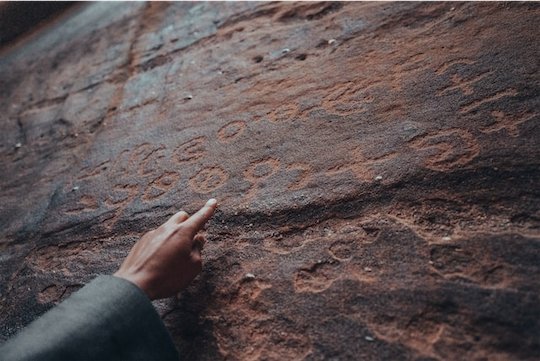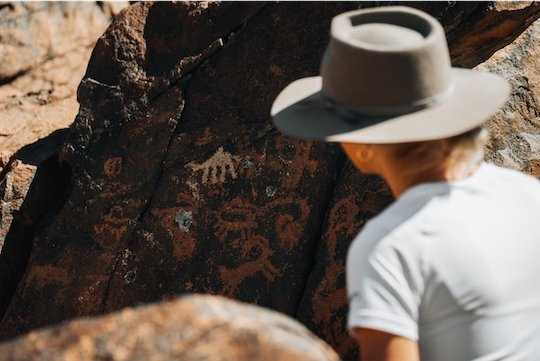The subject matter discussed is not always addressed by experts who are entirely free or independent. It involves passing on records of events happening in the present to future generations, with the intention of doing so when the majority of the individuals involved have already passed away. It's evident that there will be various versions of events, and it's up to the reader, who may be more or less equipped, to choose the one that best suits their understanding. There aren't many indisputable facts. In our peak of presumption, we even ask that it be Mastery, implying the ambition not to repeat past errors, forgetting our fragile nature in decision-making (free will?).
In this context, I'm interested in considering contemporary humanity as the latest arrival to tread the Earth's surface. It lacks knowledge of its true origin and purpose and must create references to anchor itself in reality (a relative concept) without any basis other than purely speculative ones. Our primary concern should be to expand the scope we assign to our own and societal ignorance, as it grows with our knowledge.
In this essay, I will base my argument on facts confirmed by evidence or scientific theories. There are many anthropological schools based on ancient writings, including religious ones.
Around one hundred and fifty million years ago, a highly evolved species, the dinosaurs, likely disappeared due to some cosmic incident. It is postulated that a large meteor, upon impacting the Earth's surface, released energy capable of raising massive amounts of dust and debris, obscuring the sun, preventing its light from warming the planet's surface. This resulted in the disappearance of vegetation and subsequently terrestrial and airborne life. In terms of the order of living beings, they can be compared to our mammals; they were oviparous, and among their subclasses were terrestrial, aquatic, and flying specimens. It is not known whether any of them reached intelligence as we understand it, but there is no evidence to support this hypothesis, despite their existence and evolution for over two hundred million years. Like us, they had populated the entire planet and perished miserably without escape. The catastrophe that exterminated them affected the atmosphere, and the environmental temperature shifted towards freezing (not due to their will or actions). Due to this climatic change, only certain sub-classes of aquatic dinosaurs survived, such as crocodiles and their derivatives.
Over the millions of years that followed, other human civilizations (or presumed ones) disappeared due to immense geological and/or cosmic cataclysms. We know this from discovered artifacts, references recorded in various archaeological sites, and the writings of ancient civilizations such as the Maya and Aztecs in America, as well as those in Laos and China in Asia, not to mention the abundant texts in India. These various civilizations persisted for millennia before succumbing. Therefore, there are artifacts but no continuity of civilization leading to us. In other words, their history is not our prehistory. After each extinction, humanity had to reappear from scratch.
One might have expected a larger number of artifacts and traces. Their scarcity indicates the magnitude of the enormous catastrophes that wiped them out.
I don't recall reading about anyone questioning their origins. Did they, like us, come from a long sequence of biological developments, adaptations to the environment, and DNA mutations? Or were they settlements of alien beings? I would give half my kingdom to know the answer because the first hypothesis would validate my thesis regarding the existence, within matter, of the information necessary to give rise to life and its subsequent development, including the potential existence of alien civilizations on this or other planets.
Returning to those who preceded us, they did not possess our technological development, but they had empirical knowledge that allowed them to interact with matter, shaping it in a soft manner. Examples include megalithic artifacts such as the construction of massive monuments and the movement of objects weighing over a thousand tons each. This knowledge was empirical, not scientific, as it left no traces of other applications of that wisdom.
Then came us, and here we are.
Only the Bibles speak of our genesis and possible connections or lack thereof to previous civilizations. According to them, even the Sumerians would be a legacy of something preceding Homo sapiens. Regarding the latter, it's worth noting that, based on carbon-14 dating of the walls of Altamira Caves in Spain, less than twenty thousand years ago, we were painting marvelous bisons and scenes of hunting.
I have some space left to present the hypothesis that humans were created (built?) by some previous civilization, ex novo or from some existing hominid. According to both sacred texts (the Sumerian preceding the Hebrew), it was the Celestial Gods (named so because they came from and ruled the heavens) who fashioned us. The Anunnaki in Babylon and the Elohim in Eden. These Gods moved around in noisy and fire-spitting machines. The same sources mention suitable stations to receive spaceships. They would have created us:
- To work in their gold mines, according to the Babylonians.
- To work as farmers in the terrestrial paradise, according to the Hebrews.
Whatever the choice, we wouldn't have a past to boast about.
Today, we have moved beyond the post-nuclear era and entered the age of Artificial Intelligence (also fraught with uncertainties and promises). This development is remarkable and has not been scientifically explained, appearing brief compared to the time since our appearance. While we talk about millions of years in the case of dinosaurs, here we are talking about millennia. This leads us to once again question who we are, where we come from, and the purpose of our existence (as mentioned in the previous paragraph). During my travels, I had the opportunity to contact some remote Amerindian tribes who were practically isolated. Their state of social equilibrium was such that if it weren't for the (proverbial?) arrival of Europeans, they could have continued their existence undisturbed for indefinite periods. They would fit into our prehistory, at least indirectly, stemming from some distant common ancestor.
Unlike other previous human(?) presences, which disappeared due to reasons beyond their activities (massive lava flows, earthquakes, cosmic cataclysms, floods, etc.), our technological level has allowed us to negatively impact the planet's climate, among other things.
Climate, a planetary and hence cosmic phenomenon, is much less domestic than one might think. Unpredictable changes could lead to shifts in the Earth's axis and/or variations in our orbit around the sun. This could create conditions for our potential self-destruction, contrary to the denialist movements attempting to attribute this situation to something ancestral related to the planet's cyclical patterns. Such a judgment is severe, unscientific, and misleading. If they were certain, what should our behavior be? Should we sit quietly, observe events, and await our destruction? Remarkable.
Is there any reason or privilege (due to our proverbial intelligence) that makes us certain we can survive the catastrophe? Given the current trajectory, I would say no. Every attempt or international agreement has been consistently disregarded. As a result, our habitat is being disrupted to the point of no return, considering the imminent depletion of the planet's natural resources, especially potable water and many other strategic mineral resources.
We should act as titans rather than idlers, stopping activities that are at the root of this potential catastrophe. Global warming due to the greenhouse effect linked to the colossal production of CO2 from fossil fuel combustion (present in every branch of our productive and social activities) is a significant contributor. This chemical-physical layer permeates and isolates the atmosphere, hindering the planet's natural cooling. This situation is the opposite of what led to the extinction of the dinosaurs, but it is no less severe.
This disruption of the natural balance manifests unevenly in different areas of the Earth, depending on their geographical location and their relationship with the oceans. One of the first consequences is seen in the sea's surface temperature. An increase in sea temperature leads to changes in marine fauna and flora, rising coastal sea levels, and increased water evaporation into the atmosphere. Globally, the amount of water it can support remains almost constant, so rainfall must increase as a result. In turn, this leads to precipitation in regions governed by other equilibrium mechanisms, ultimately disrupting predictive weather models. Entities responsible for studying these developments are struggling and are forced to issue increasingly short-term and less accurate forecasts. The movement of high-altitude clouds also causes localized air mass overheating, leading to violent thunderstorms, hurricanes, etc. This translates to wildfires and similar flood disasters on human settlements.
Another manifestation of climate disruption is the disappearance of numerous species of flora and fauna. Specialists are concerned about these analyses. Personally, I'm not so despondent about this phenomenon because I'm certain that new species will emerge to occupy the spaces left by those that are disappearing. We, on the other hand, should adapt to these new coexistences, knowing that a new survival etiquette will need to take into account the food chain.
All of this is derived from the massive burning of fossil products such as oil and coal and any other carbon-containing substances destined to produce energy. This also generates harmful nitrogen oxides (when atmospheric oxygen is used as a combustion agent), as well as micro-particles that attack our bodies, leading to what we call pollution.
There is no more time for a soft ecological transition based on understanding, assimilation, and acceptance by the masses. Drastic and imperative measures are needed, even if they are unpopular at this stage.
In reality, many people have faith in future non-polluting energy systems. Hope is the last to die. As an active participant in research on hydrogen production using nuclear heat in thermochemical processes, I certainly won't contradict them. My fear lies solely in the timing. Will these alternative energy systems arrive in time to prevent catastrophe? I'm not entirely certain. The engineering phase of these systems is complex and not immediately achievable. As a side note, there is the option of returning to classical nuclear fission, using state-of-the-art reactors (construction times around 8-10 years).
Alternative energy sources already in operation, such as solar, wind, and geothermal energy, are very important. Unfortunately, they are not capable of meeting our current energy needs on their own, especially if we maintain the same consumption levels.
From this observation arises another potential energy source: savings in domestic consumption, such as personal mobility and the inherent waste in controlling indoor temperature for both extreme seasons. Once again, implementing the measures required to achieve these savings would mean disrupting the real estate and existing transportation markets (e.g., thermal insulation and restrictions on travel). A revision of the basic concept of private and individual property should not be ruled out either. If the costs of climate management become prohibitive, society itself must bear them to avoid the collapse of a significant portion of its members.
For now, we are at the "every man for himself" level, relying on our ephemeral resources, poorly distributed across the globe.
It's not my intention to delve into the intricacies of politics, but the attitude of the responsible authorities at the highest level (the leaders of world states) does not seem to be manifesting with the necessary urgency. They are also (unfortunately) forced to address (and resolve?) other serious concerns such as wars, geopolitics, monetary systems, underdevelopment, immigration, poverty, hunger, and thirst. Victims of compromises and ancient alliances, they appear incapable of producing painful but forward-thinking and decisive alternatives. The fish begins to stink from the head.
What about the masses, often powerless and disconnected from the issue? For now, they are relegated to the mere right to grumble, but I'm convinced that someone within the same, global society will present them with the real dimensions of the problem and the associated risks, demanding a necessary and urgent solution. Far from mythical Cassandras, I won't dwell on potential movements or massive currents of opinion, leaving their management to the relevant political forces. The solution, if it arrives, will depend on each of us understanding that our contribution is so important as to be decisive. Triumph will come from the power of the individual and in this case, the collective.
In parallel with the search for and implementation of viable solutions to this problem, part of our society is mobilizing toward the creation and implementation of extraterrestrial platforms (orbiting or on our natural satellite) to house some representatives of our species in an effort to prevent its extinction. Who would be chosen to inhabit them? Those who fight for and work towards a real solution on the planet or representatives of some caste, unaware of transmitting their own flaws to future generations? In any case, this is a topic that will generate a new business.
However, if we were to inevitably disappear entirely, after a longer or shorter period, the Earth would heal its wounds. Once the climate is restored with the help of plants and certain forms of animal life (which would likely mutate but not disappear), the biological chain would restart, leading to the emergence of new animal species and perhaps humans once again.
It is very likely that, unlike what happened to us, newcomers after our extinction (once they reach an age of wisdom) will find traces of our technological past. This would accelerate their development, causing them to make the same mistakes (or avoid them) as we did. Think of the "Planet of the Apes" scenario.
Prayer of the believer: May the Creator assist the new arrivals, if He doesn't find the time to assist us first, enlightening us and helping us resolve our dilemma. After all, this planet is His creation, and that's why we call it Father.
